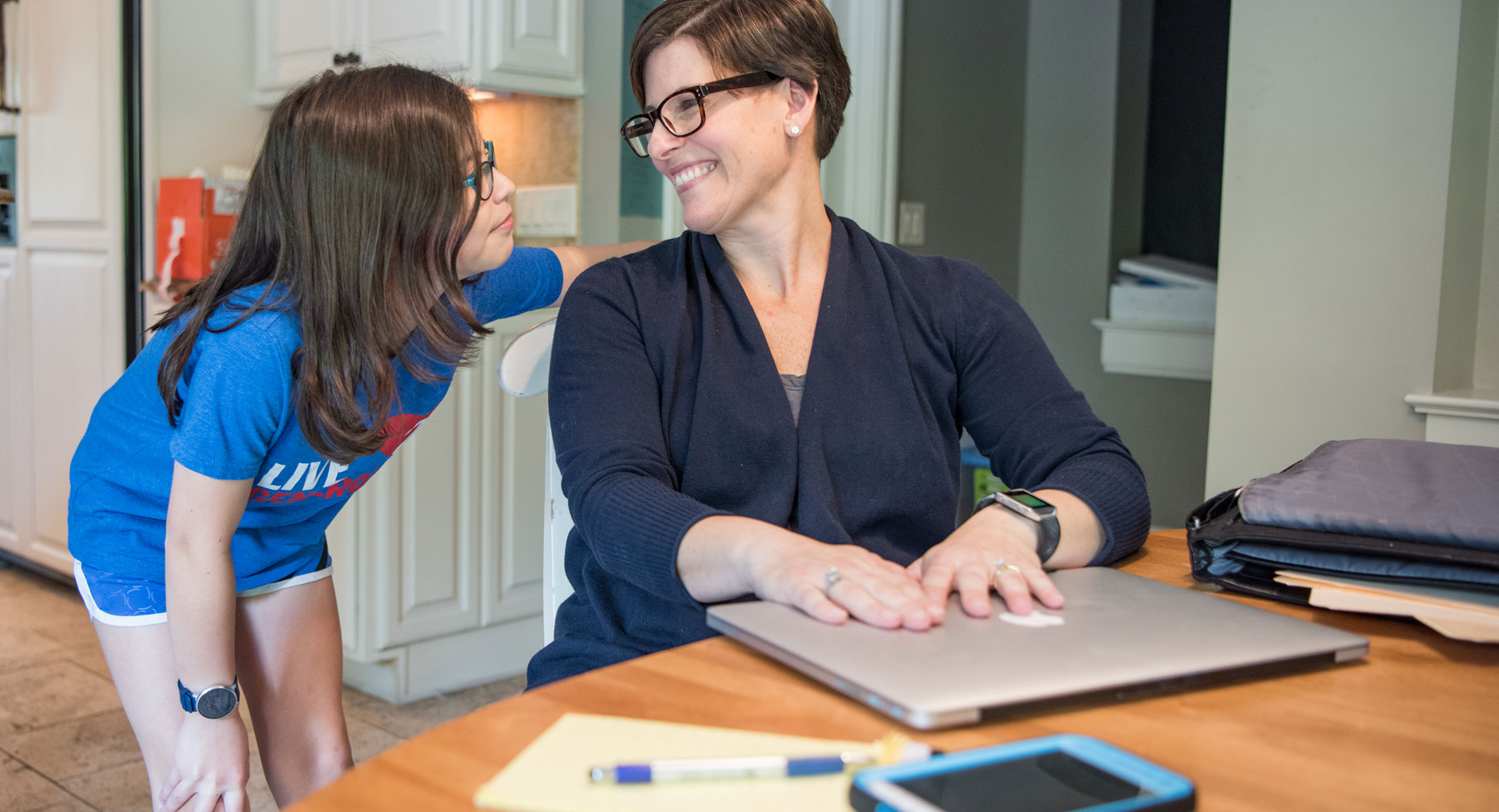Do You Find It Hard to Just Say No?

Answer a few questions and we'll provide you with a list of primary care providers that best fit your needs.
Do you find it hard to say no to a boss, a friend, or a family member? Does it make you feel really, really, really guilty? Do you take on extra work just so you don’t have to say, “Not this time?”
You’re not alone.
Work, family, volunteering – women are often pulled in many directions and sometimes unsure of when, if ever, to set limits and just say no. Sometimes, we pay a high price for that.
“When you don’t say no, you’re saying yes to stress,” says Fadi Tayim, PhD, division chief of neuropsychology at the Premier Health Clinical Neuroscience Institute. “When saying yes causes significant stress in your interpersonal relationships, and a complete disconnect in your work-life balance, it’s time to set some boundaries.”
If you absolutely can’t say no, see if you can reach a compromise.
Why Is It So Hard to Say No?
Dr. Tayim gives four reasons for why it’s hard for some of us to say no:
- First and foremost, he says, we worry about how we’ll be perceived. “The first time you say no, you fear you won’t be seen as a team player,” he explains. “It’s as though all the times you said yes never happened. Whether the person asking is your boss or a coworker or a friend, you’re asking yourself, ‘What if this makes me look bad?’”
- We feel vulnerable in a highly competitive environment, regardless of our experience level. “It’s hard for people across all generations to say no, from recent college grads who are under immense pressure to impress and get ahead, to the 30-year veteran who’s always been relied upon to stay late and work 14-hour days, or is fearful of being forced out of a job,” Dr. Tayim says.
- We’re caught off guard, with no ready response at hand. “The context of the ask is really important,” explains Dr. Tayim.
- We don’t want to hurt a friend’s feelings. “Sometimes, we have the most difficulty when it comes to friends,” he says.
Why Saying No Is Healthy
“When the expectations of your saying yes are causing significant stress, saying no outweighs the risk of saying yes,” Dr. Tayim says.
According to Dr. Tayim, “it’s just not worth it” to say yes if:
- Staying late and/or arriving early at work has become a way of life
- You are unable to do activities that previously were a normal and fun part of your life, like exercise or spending time with friends and family
- Other people are asking why they haven’t seen you in a while
Left unchecked, these situations can drive up your stress levels. How do you know if your excessive commitments are leading you to a breaking point? The experts at Samaritan Behavioral Health recommend asking yourself:
- Do minor problems and disappointments upset you excessively?
- Do life’s little pleasures fail to satisfy you?
- Are you unable to stop worrying?
- Do you feel inadequate or suffer from self-doubt?
- Are you constantly tired?
- Do you experience flashes of anger over minor problems?
- Have you noticed a change in sleeping or eating patterns?
- Do you suffer from chronic pain, headaches or backaches?
Continued strain on your body from routine stress may contribute to serious health problems, like heart disease, high blood pressure, diabetes, and other illnesses, as well as depression or anxiety. In addition, when the source of stress is constant (like when you always take on too much work or too many responsibilities) your immune, digestive, sleep and reproductive systems may stop working normally.

How to Say No
Saying no is just plain hard for many people. “When you say no, it’s a line in the sand, a definitive statement,” Dr. Tayim says. “Saying no itself is the start of setting boundaries.”
He offers some tips on strengthening your resolve to set limits:
- Know your priorities. “Keep a short list of the things that demand your time on a regular basis, like caring for your dog or picking up your kids from soccer,” he explains. This is especially helpful when you’re caught off guard by a request for your time. Remember the other things in your life that don’t go away just because you feel obliged to say yes.
- Be specific on what you can or cannot do, and when you can or cannot get it done.
- If you absolutely can’t say no, see if you can reach a compromise. Don’t give an unconditional yes. Rather, Dr. Tayim suggests saying, ‘Sure, but can I get the deadline extended?’ or “I will if I can get extra time to work on it.’”
“Setting boundaries and saying no is not natural to all people,” Dr. Tayim concludes. “But once you realize that the fear is in balancing perceptions and expectations, you’ll see that it doesn’t reflect on who you are as a person.”
Answer a few questions and we'll provide you with a list of primary care providers that best fit your needs.
Source: Samaritan Behavioral Health (sbhihelp.org), Stress Checklist; National Institute of Mental Health (National Institutes of Health); Office on Women’s Health, U.S. Department of Health and Human Services; Fadi Tayim, PhD, division chief of neuropsych




.tmb-card-head.webp?sfvrsn=680c0961_9)
